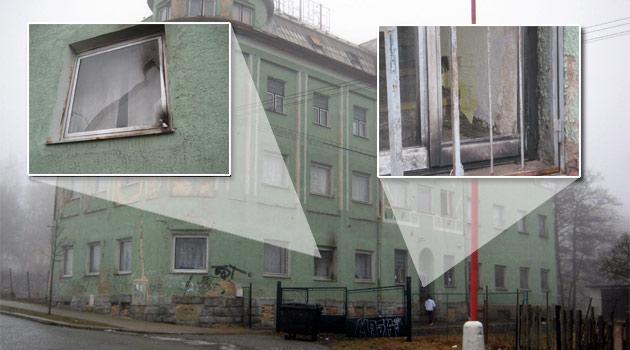Czech Supreme Court upholds sentencing for neo-Nazi who attempted to burn 18 Romani people, eight of them children, to death

Tomáš Kopecký, the man who committed a 2012 arson attack on a Romani-occupied residential hotel in the Czech town of Aš, must serve a prison sentence of six years and nine months, according to the Supreme Court. There were 18 people, eight of them children, in the building at the time.
Nobody was physically harmed because the building occupants managed to put out the fire in time. According to the courts, Kopecký committed racially motivated attempted murder and reckless endangerment, as did his accomplice, Michal Poláček, who did not appeal the lower-instance sentencing and is not mentioned in the Supreme Court decision.
According to the Supreme Court, Kopecký had to have known that people sleeping in the residential hotel could have died as a result of his arson. “There is no doubt that a person sleeping in a room in which a fire is set is at immediate risk of losing his or her life, not just because of the fire itself, but also because of the aggressive toxic fumes released when things burn,” the decision reads.
The Supreme Court rejected the appeal at the beginning of the year and has only now made its reasoning available. The last extraordinary remedy for the convicted perpetrator remains a constitutional complaint, but according to the available information, none has yet been filed in the matter.
Kopecký and Poláček, according to the courts, committed their attack as adherents of the neo-Nazi, racist organization Blood & Honour Division Bohemia and its militant offshoot, Combat 18 Bohemia. They poured gasoline on the area around the doors to the residential hotel and threw two Molotov cocktails inside the building.
A third accomplice, Jan Balík, was convicted in the case as an organizer of the neo-Nazi activity. According to the case file, he found members for the group, established a website for it, wrote the content on the web pages, and sold CDs, DVDs, sweatshirts, t-shirts and other items featuring themes of neo-Nazi activities and groups.
Balík was sentenced to three years and eight months in prison and his appeal, expressing objections to the fact that his conversations with others were recorded without his consent, was unsuccessful. Another convicted accomplice connected to the group who has also unsuccessfully appealed to the Supreme Court was a man who, according to the verdict, contributed to setting a wooden cabin on fire in Prague.
That perpetrator was given a suspended sentence. The Czech courts have previously dealt with other racially-motivated arson attacks on Romani-occupied buildings.
The most famous case is from April 2009, when four neo-Nazis threw three Molotov cocktails into a single-family home in Vítkov (Opava district) and an infant suffered burns over 80 % of her body. The courts sentenced those extremists to between 20 and 22 years in prison.
